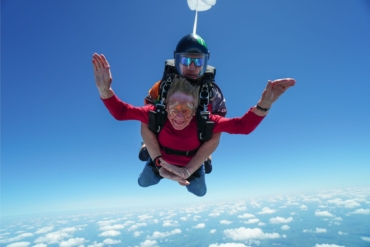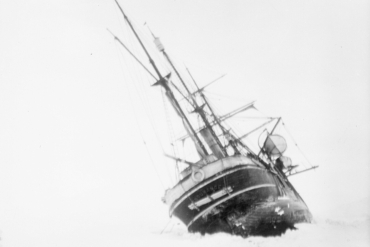In October, a plane carrying more than a dozen skydivers entered a spin and began diving toward Earth. Here’s what happened.
On October 14, the pilot of a twin-engine Beechcraft King Air C90 carried 15 skydivers to 16,000 feet above Mossel Bay Airport in South Africa. With all pre-jump checks in order and the climb going as planned, one wave of skydivers, including a videographer, made their way toward the aircraft’s external step.
They hadn’t planned for what would happen next (though, thankfully, their training had). Shortly after the skydivers left the step, the plane began spinning before nosediving into a weft of clouds.
The footage, captured by videographer Bernard Janse van Rensberg, shows five other divers in the “float position” outside of the spinning King Air.
The pilot, identified by van Rensburg as Henk Van Wyk, followed his training and righted the plane. He offered his retrospective in a Facebook post on November 1. Van Wyk described what caused the stall and spin, and he explained that training prepares pilots and qualified skydivers for such events.

“The stall and subsequent spin happened when we allowed too many jumpers on the outside step, causing an aft center of gravity. The nose then pitched up beyond the controllability of the elevator,” Van Wyk wrote.
He described idling power to the right engine and propeller controls to neutralize the engine effect. He then centered the ailerons and applied full right rudder.
“The aircraft behaved very well, and the recovery was surprisingly easy. I pulled out as gently as possible as I did not want to stress the airframe.”
The pilot immediately reported the incident to the South African Civil Aviation Authority (CAA). The aircraft was found undamaged and safe for future flights following CAA inspection.
Van Wyk clarified that pilots and divers at Mossel Bay implemented a few changes to their skydiving operations the next day. “[N]o more than [five] jumpers will be allowed on the outside step. We will also brief the big formations to be wary of a pitch moment of the nose of the aircraft so they can let go should this ever happen.”
Runtime: 2 minutes







